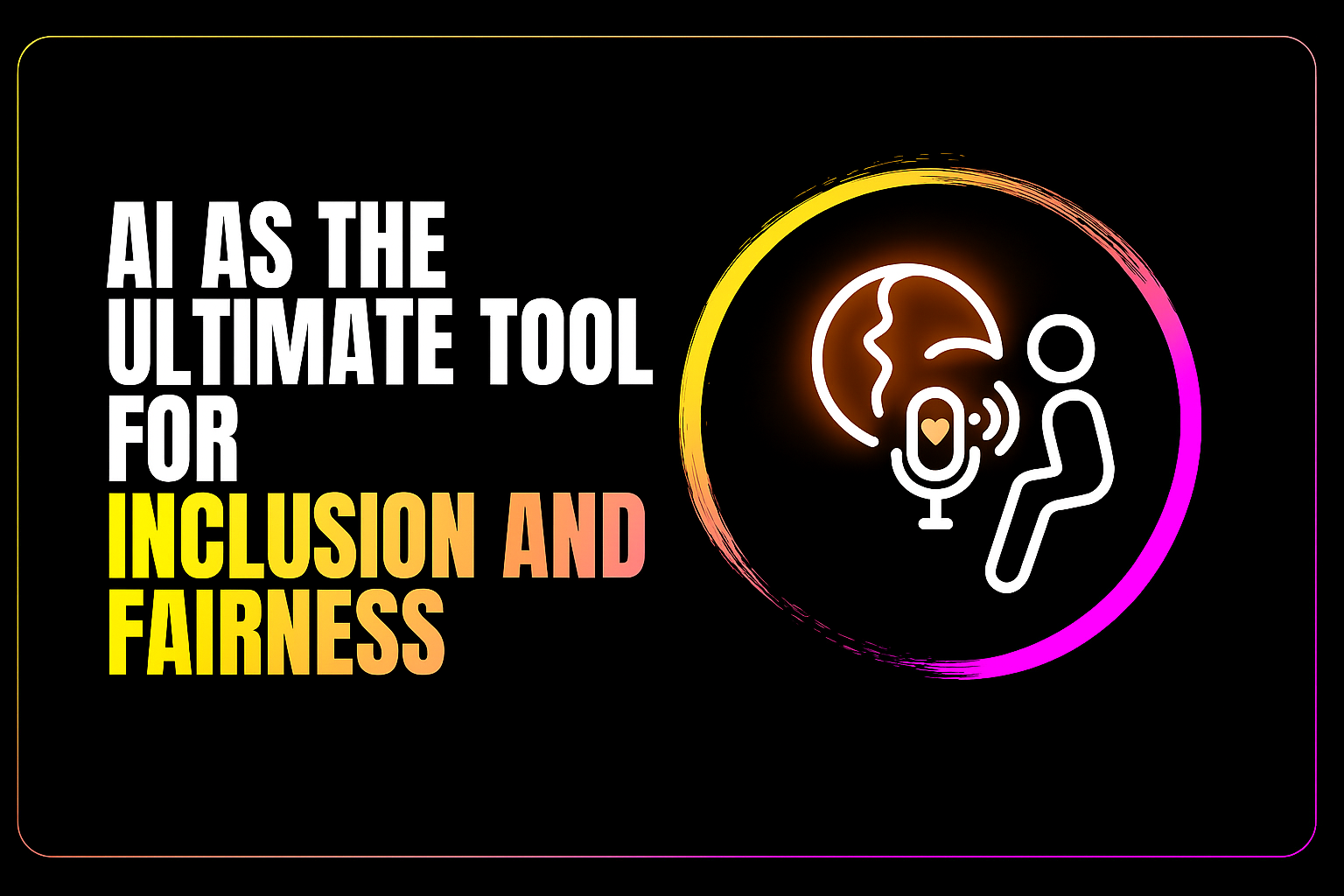
AI is revolutionizing inclusion and fairness by providing personalized communication tools for people with disabilities, reducing cognitive load for neurodivergent individuals in the workplace, and acting as a crucial bias interrupter in recruitment.
The true measure of any powerful technology lies in how it serves everyone, not just the privileged few. For over a billion people worldwide living with a disability, the digital world can often feel like a frustrating barrier. That's rapidly changing. Artificial Intelligence is now the great Ape of accessibility, smashing down old communication walls and, perhaps surprisingly, helping us weed out human-driven bias in the workplace.
Did you know…
The World Health Organization (WHO) estimates that 2.5 billion people currently require at least one assistive product to enhance their ability to perform daily activities and live independently. This number is projected to rise to 3.5 billion by 2050
AI’s ability to "see" and "hear" is fundamentally altering how people with disabilities interact with their devices and the world. These tools don't just mimic human interaction; they adapt to your unique needs.
For individuals with non-standard speech due to conditions like ALS or Parkinson's, traditional voice recognition fails miserably. Companies are dedicating serious resources to personalized speech models. Apple’s Personal Voice feature uses AI to help you create a synthesized voice that sounds like you, allowing you to speak to others using assistive technology with your own identity. Similarly, Google’s Project Euphonia trains models on disordered speech samples, improving transcription accuracy by up to 30% for those with conditions like Parkinson’s. This isn't just dictation; it's restoring a sense of self and independent communication.
For those with vision impairment, AI acts as a seeing-eye partner. Apps like Be My Eyes, powered by large language models, can instantly analyze an image or video feed and answer follow-up questions about it. You can point your camera at a cupboard and ask, "Which cereal box is the gluten-free one?" and receive a conversational, detailed answer, granting you immediate independence without needing to wait for human assistance.
In the modern, high-speed workplace, AI is also proving invaluable for cognitive and neurological differences. For people with dyslexia, ADHD, or autism, tasks like summarizing long meetings or drafting complex emails can cause anxiety and consume excessive time.
Tools like Microsoft Copilot are being adopted to create more equitable work environments. By helping users summarize meetings, structure documents, and organize to-do lists, AI dramatically reduces what’s called the "cognitive load." Employees with neurodivergent conditions have reported a 30% time saving on complex writing tasks, giving them parity with their peers and boosting their confidence. You’re seeing AI act as a tireless executive assistant tailored precisely to how your brain works best.
Did you know…
A study on emotion-adaptive AI tutoring systems showed a 25% increase in student engagement compared to static learning environments. This improvement is crucial for neurodiverse learners, such as those with anxiety or cognitive differences, providing a more effective path to education.
A great feature of AI, when developed responsibly, is its objectivity. While algorithmic bias is a serious concern, the human element in high-stakes decisions is often far more biased and difficult to measure.
In recruitment, unconscious human bias based on factors like names, past schools, or perceived background has long skewed hiring decisions. New research suggests that AI is actually the solution, not the problem. Audited AI hiring systems are demonstrating up to 45% fairer treatment for racial minority candidates and 39% fairer treatment for women compared to human-led decision-making. You see, AI forces recruiters to evaluate candidates against objective, measurable criteria, interrupting the fast, instinctual human bias that has dominated hiring for too long.
Companies like Google and Microsoft are promoting transparency, publishing guides like the Data Cards Playbook and Transparency Notes, which detail the intended uses and limitations of their AI models. By insisting on accountability, they’re helping developers understand and fix biases, proving that when designed with ethical guardrails, AI is our best hope for a fairer, more accessible future.